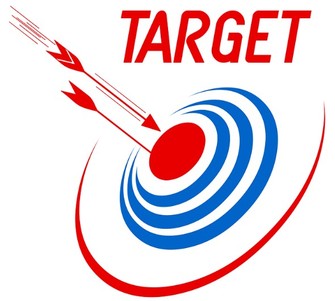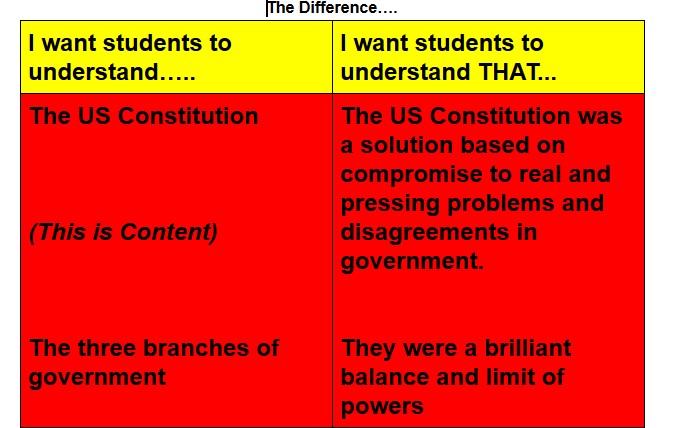Stage1: Identify Desired Results
During this review of Stage 1, we will answer Challenge Question 1.
Challenge Question #1: How is it possible to focus first on desired outcomes from which appropriate teaching would logically follow?
When you begin to plan your unit, look at goals, content standards, exit goals-beginning with the end in mind. In other words, What are the learning targets? Learning targets can take several forms: knowledge, reasoning, skill, product or disposition. You must identify and consider the key verbs in the learning target to be able to plan learning activities that will lead to the end goal.
Learning Reasoning Skill Product Disposition
Types of Learning Targets and Key Verbs:
Knowledge targets form the foundation for each of the other targets.
Factual Information: knows, lists, names, identifies, recalls
Conceptual Understanding: student understands and can explain a concept
Knowing via reference: beyond knowing information outright
Reasoning targets specify thought processes students are to learn.
Inference: making a reasonable guess based on information or clues
Analysis: examining the components or structure of something
Comparison: describing similarities and differences between two or more items
Classification: sorting things into categories based on certain characteristics
Evaluation: expressing and defending an opinion, a point of view, a judgement,or a
decision
Synthesis: combining discrete elements to create something new
Skill targets ask for a demonstration of a physical skill-based performance.
Product is the creation of an end results that is the focus of learning and assessment.
Disposition includes attitudes, motivations and interests that affect students’ approaches to learning.
Therefore in Stage one of UbD, you must determine what is worth understanding:
Stage 1 Desired Results
How is this thinking different than the thinking we do in traditional planning?
Knowledge targets form the foundation for each of the other targets.
Factual Information: knows, lists, names, identifies, recalls
Conceptual Understanding: student understands and can explain a concept
Knowing via reference: beyond knowing information outright
Reasoning targets specify thought processes students are to learn.
Inference: making a reasonable guess based on information or clues
Analysis: examining the components or structure of something
Comparison: describing similarities and differences between two or more items
Classification: sorting things into categories based on certain characteristics
Evaluation: expressing and defending an opinion, a point of view, a judgement,or a
decision
Synthesis: combining discrete elements to create something new
Skill targets ask for a demonstration of a physical skill-based performance.
Product is the creation of an end results that is the focus of learning and assessment.
Disposition includes attitudes, motivations and interests that affect students’ approaches to learning.
Therefore in Stage one of UbD, you must determine what is worth understanding:
Stage 1 Desired Results
- Establish goals
- Students will understand that….
- Students will know…
- Essential questions
- Students will be able to...
How is this thinking different than the thinking we do in traditional planning?
Lets move to Stage 2 of the UbD.


